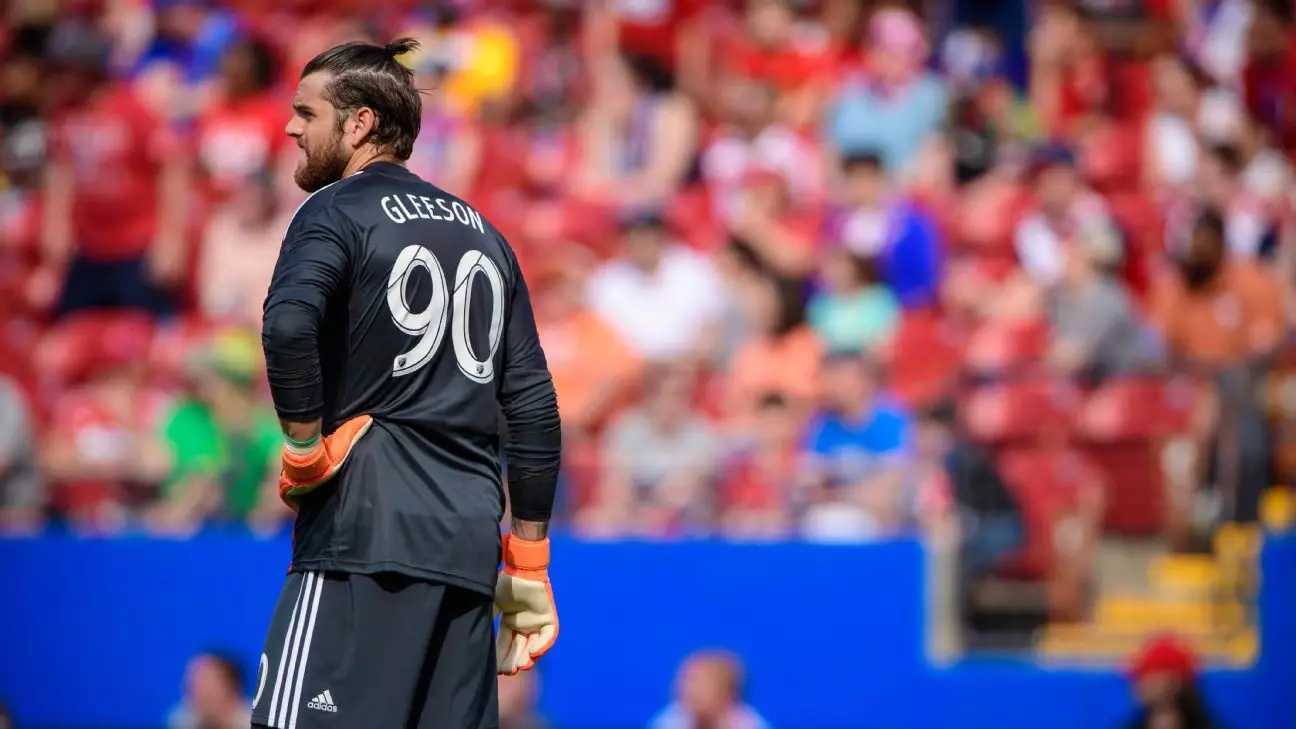In a pivotal legal showdown, the former goalkeeper for the Portland Timbers, Jake Gleeson, confronted the medical establishment and emerged victorious. The jury’s ruling in his favor marks a significant moment not just for Gleeson, but for all who have suffered at the hands of medical negligence. Awarding him over $20 million, the verdict underscores the responsibility that healthcare professionals carry when patients entrust their lives—and livelihoods—to them. Gleeson’s fight highlights an often-overlooked issue in the world of professional athletics: the extent to which athletes depend on medical professionals for their physical and mental well-being.
Gleeson’s battle began in 2018, when a surgical procedure intended to rectify stress fractures in his legs spiraled into a nightmare. Instead of the expected rehabilitation and return to the field, Gleeson faced an excruciating journey characterized by persistent infections and relentless pain. The medical complications he encountered not only curtailed his soccer career but inflicted irreversible damage to his quality of life. The case has opened a necessary dialogue about the ethical obligations of physicians and the dire consequences when those obligations are unmet.
The Emotional Toll of Medical Negligence
In a highly charged courtroom, the emotional weight of Gleeson’s testimony resonated deeply. The athlete recounted the harrowing series of surgeries—14 in total—that transformed his life into a cycle of pain and uncertainty. Each operation was a reminder of his lost potential, a farewell to his dreams cut short prematurely. The jury was faced with not only the facts of malpractice but also the profound human impact that such negligence can yield.
Gleeson’s eloquent articulation of his suffering has made him a voice for many who are unable to advocate for themselves. His insistence that doctors must maintain the highest standards of care, regardless of their patients’ backgrounds, is a crucial reminder that negligence does not discriminate between professional athletes and everyday individuals. The notion that consent implies a guarantee of safety is sacred; Gleeson’s case is a stark reminder of the tragic reality when that trust is violated.
Questioning Medical Practices and Protocols
At the heart of Gleeson’s case were critical allegations that the plates used in his surgery had not been properly sterilized, directly contributing to the complications he experienced. This incident raises ethical questions about the medical practices employed in surgical settings. The defense’s reliance on technical sterilization methods such as Immediate-Use Steam Sterilization (IUSS) highlights a troubling complacency that can occur when surgical standards are upheld at the expense of individual patient safety.
The jury’s decision to hold Dr. Richard H. Edelson accountable reflects an urgent need for hospitals and medical professionals to scrutinize their protocols and prioritize patient welfare above all. The aftermath of Gleeson’s case demands an examination of the systemic flaws within surgical facilities that can ultimately compromise patient care. Such introspection could prevent future tragedies and restore faith in the medical system for countless individuals.
Support from Teammates: A Testament to Character
The solidarity Gleeson received from former teammates during this tumultuous period serves to illustrate the camaraderie that exists in the world of professional sports. Their willingness to support him at trial underscores the importance of community and accountability, and it is a heartfelt reminder that athletes aren’t just competitors in their respective sports; they are individuals with personal battles that extend beyond the field. This collective backing of Gleeson not only reinforces a sense of unity among players but also highlights the significant emotional ramifications that medical negligence has on the lives of those affected.
As the legal battle unfolds, it stands to reason that the outcomes will resonate far beyond the confines of the courtroom. With the sports world closely monitoring the case, other athletes may feel empowered to speak out against medical malpractice, igniting a broader push for systemic changes within healthcare practices for all those leading high-stakes lives, whether on the professional stage or not.
A Forward Path: Advocacy in the Wake of Adversity
Jake Gleeson’s valor in confronting a powerful institution and seeking justice is a compelling narrative of resilience. It serves as a source of inspiration for anyone grappling with the repercussions of medical negligence. His desire to emerge as an advocate for safer medical practices offers a glimmer of hope—an assertion that individual experiences can foster systemic change. The future may hold challenges for Gleeson, yet his commitment to raising awareness about the responsibilities in medical care can help transform the landscape of patient rights and safety. The victory in this case is just one step in a larger journey toward accountability, fairness, and improved standards in healthcare across the board.


Leave a Reply